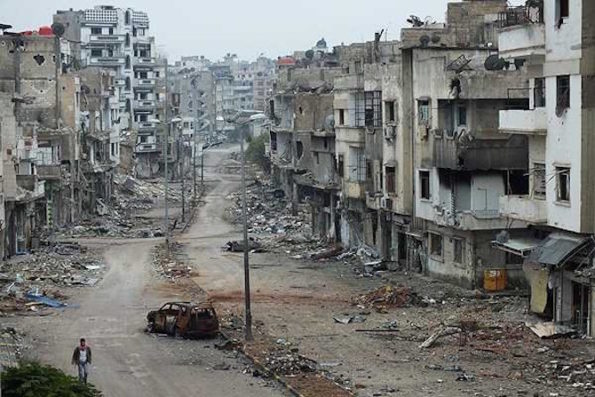Search
To search for an exact match, type the word or phrase you want in quotation marks.
A*DESK has been offering since 2002 contents about criticism and contemporary art. A*DESK has become consolidated thanks to all those who have believed in the project, all those who have followed us, debating, participating and collaborating. Many people have collaborated with A*DESK, and continue to do so. Their efforts, knowledge and belief in the project are what make it grow internationally. At A*DESK we have also generated work for over one hundred professionals in culture, from small collaborations with reviews and classes, to more prolonged and intense collaborations.
At A*DESK we believe in the need for free and universal access to culture and knowledge. We want to carry on being independent, remaining open to more ideas and opinions. If you believe in A*DESK, we need your backing to be able to continue. You can now participate in the project by supporting it. You can choose how much you want to contribute to the project.
You can decide how much you want to bring to the project.

Sunday, July 17th, 2016
I am sitting at the airport in Nice, waiting for my flight connection to Berlin.
When I arrived in France on the morning of the 14th, the sun was shining. Today, the sun is still shining; pop music is coming from the café´s speakers. The waiter switched off the TV when the news came on, though. He did not want the tourists and locals to see the images from the night of the 14th… After this another, horrifying attack on humanity, I hesitated to bring my 11 years old son to the summer camp he’d been looking forward to for weeks, but then, we both decided that we do not want anybody to decide for us what to do. We won’t give up our freedom to be part of this life.
If we look at societies (examples described in the article) where there are censorship and no access to a freedom of expression, the common cultural and humanistic values we share have no validation.
Culture as a guarantor for a democratic system is extremely undervalued. Nowadays, the humanities are losing students.
The ivy league universities are struggling with drop out students who’d rather go straight into the IT business because a college degree is no longer a guarantee for a fulfilling career. For many of toda’s generation university/higher education is not a desirable direction to go.
Arts and humanities are the biggest losers in this “cultural shift”. I realize it in my son´s education where the students have to decide whether they want to choose “art” or “music” in their basic education…To choose both is not an option.
It is up to us to make sure that we and the next generation cherish the cultural values in individual and state directed education to secure our existence in peace and democracy.
MAKE ART, NOT WAR!
Text Selection:
The greatest failure, a lack of culture (editorial published on 30.11. 2015)
We’ll begin by admitting that this is overwhelming, majorly overwhelming. There is no other way to write a text about it. We accept therefore that we can’t even catch a glimpse of the thread that someone is pulling on from a very distant, or not so distant place. And from this sincere and humble assumption of our insignificance, we haven’t nor have we wanted to let another day pass without putting into words what we need to transmit. We’ll continue by affirming that this text is written by the editorial board of A*DESK, because we consider it indispensable, for we believe in criticism that walks barefoot across the floor if its time.
These days, a video by the Syrian artist Nassough Zaghlouleh that ought to have been showing in the gallery L&B in Barcelona won’t be presented for fear of reprisals from Islamic State. On 17 November 2015, the poet and art curator, of Palestinian origin Ashraf Fayadh is condemned to death in Saudi Arabia. The charges: apostasy in his book of poems of 2008 and illicit relations with women. Fayadh was arrested in 2013 by the religious police, released with charges, arrested again in 2014 and sentenced to 800 lashes and four years in prison. After a petition calling for the revision of his case, the court that revisited his case rejected his testimony and condemned him to death. This is in addition to the young Ali Mohammed Al-Nimr, condemned to death by crucifixion for participating in a demonstration during the so-called “Arab spring” in 2012. And all those others we don’t know about.
On 13 November 2015, 129 people are killed in Paris, victims of a terrorist attack. These join the more than 200.000 people who have died victims of the Syrian civil war; that is wreaking destruction, of not just the vestiges of a more humanist past, but also in a tense present and devastated future. These are in addition to the victims of Boko Haram, the most lethal terrorist group. Or the 32.658 people who died in the world due to acts of terrorism in 2014 (figures from www.visionofhumanity.org). These are in addition to the victims of the conflict between Palestine and Israel one of humankind’s greatest disgraces today, the living example of resentment and vengeance as a people(s).
Walter Benjamin wrote, “There is no document of culture that is not at the same time a document of barbarism”. Maybe the greatest current failure we can think about is the collective one, that of a civilization that doesn’t know how to coexist or tolerate each other, that uses religion (or economy) as projectile weapons and as arguments for intrusion, exclusion and dominance. As in all cases, it is necessary to analyse the failure to discern its causes, so that barbarism can be, from now on, confronted by the highest and most valiant Culture that we can generate amongst us.

Swetlana Heger lives and works between Berlin and Umeå, Sweden. She is a visual artist and lecturer in Fine Art at the University of Umeå. She has a continued interest in the acts of contextualising and dislocating. She explores questions about the conditions of artistic production, including the discussion about multiple authorship and the possibilities of collaboration between art and other agents.
"A desk is a dangerous place from which to watch the world" (John Le Carré)